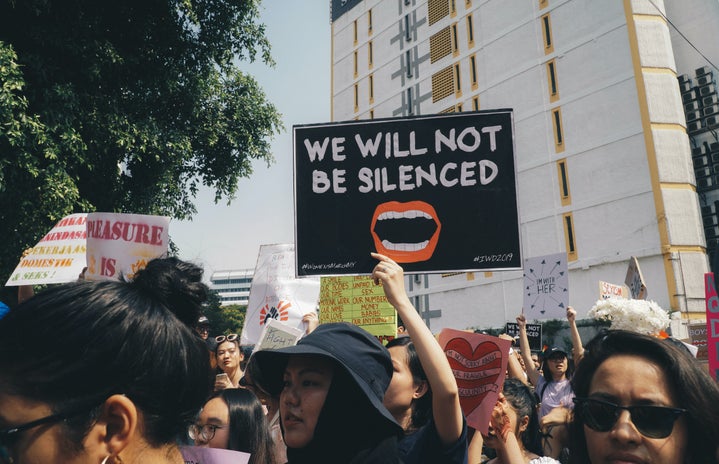Female Afghan government workers are being forced by the Taliban to give up their jobs solely because they are women.
Since the Taliban regained power in Afghanistan, women’s freedoms have grown increasingly restricted. Only a select few female government employees have been allowed to keep their jobs, with the majority being refused paychecks. Beforehand, they worked to become self-sufficient – something that is remarkably uncommon in a society where women are expected to act submissive and obedient towards men.
In order for the Taliban to deny any claims of these women being jobless, those fired are still required to occasionally check in at their former work sites. Because the government is unwilling to take ownership of the situation, these women are taking to the streets of Kabul to protest, and in return are beaten, arrested, sprayed with pepper spray and threatened with weapons.
The Taliban resurgence does not only impact jobs; female livelihoods are at stake as well. Few girls above the sixth grade level have attended school since the takeover, and women are no longer permitted to take long journeys without a male family member as escort. Both of these new restrictions are reflective of old standards that were set during the Taliban’s previous rule, when getting an education was prohibited from women and girls and women were unable to leave their homes without a male relative. Another new regulation requires women to cover up, as they may not use public transportation without wearing hijab.
The Taliban have publicly expressed their hopes for opening schools for girls in March. However, it is hard to trust such statements when taking the government’s past into consideration. There is already a clear disconnect between what is being said and what is being done. In August, Taliban spokesman Suhail Shaheen claimed in a CBS News interview that women would be able to work as they wish, and the opposite has happened. As the protests in Kabul continue, any semblance of trust that could be found in the new leaders wanes.
During the U.S.’s withdrawal from Afghanistan, women all over the world feared for the future of female activism and progression in the country. Although it is too soon to say whether the circumstances have fallen back to when the Taliban ruled in the ’90s, the government has already taken steps backward. These restrictions are being placed during an age where most women (at least in Western society) do not have to worry about everyday freedoms like being able to work and travel independently.
While culturally, Afghanistan’s expectations of women are different than those of men, there is still a fine line between religious influence and sexism that the Taliban struggles to see it. Because they are women, these government workers’ sources of income were taken from them. Despite protesting peacefully, they are beaten. It is important for women and men that are coming from privileged situations to acknowledge the challenges that Afghan women are facing right now and use their platforms to spread awareness.
Sources: https://www.nytimes.com/2022/01/24/world/asia/afghan-women-taliban-protests.html; https://apnews.com/article/afghanistan-education-united-nations-kabul-taliban-c07aefcb90b560bc82b60b17d9623833; https://www.hrw.org/news/2021/08/17/fragility-womens-rights-afghanistan; https://www.msn.com/en-us/news/world/taliban-spokesman-on-future-us-relations-and-womens-rights/ar-AANLDUC


